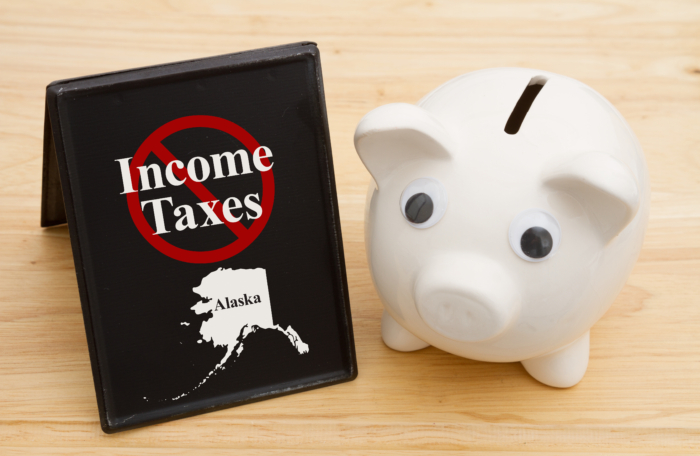New Hampshire to be income-tax-free in 2025
On January 1, 2025, New Hampshire will ring in the new year as the only Northeastern state without an income tax.
On that day, New Hampshire will join seven other states—Alaska, Florida, Nevada, South Dakota, Tennessee, Texas, and Wyoming—as the only U.S. states that don’t tax personal income. (Washington state passed a capital gains tax in 2021 that its Supreme Court upheld this spring, erasing its status as an income-tax-free state.)
You might have thought New Hampshire already appeared on that list, given our reputation for having no sales or income tax. It doesn’t.
While the state doesn’t tax individual earned income, it has taxed passive personal income since 1923. It does so through the Interest & Dividends Tax. From 1977 to 2022, the I&D Tax rate was 5%.
The 2022–23 state budget included a provision to phase out the I&D Tax by 1 percentage point a year until its elimination in 2027. The tax this year is set at 4%.
The 2024–25 state budget adopted this month moves the repeal date to New Year’s Day 2025.
Who pays the I&D Tax (and thus an income tax) in New Hampshire? Every New Hampshire resident and fiduciary whose gross interest and dividends income from all sources is more than $2,400 annually (or $4,800 for joint filers) is subject to the tax.
Limited liability companies, partnerships, and associations with non-transferable shares whose gross interest and dividends income from all sources is more than $2,400 a year also pay it.
How much money does the I&D Tax extract from the economy annually? It yielded $126.0 million in fiscal year 2020, $120.7 million in FY 2021, and a record $157.5 million in FY 2022.
Opponents of phasing out the I&D Tax have said the state could ill afford to lose that much revenue. But thanks to a growing economy, state revenues have exceeded budget targets in every fiscal year but one during the last decade.
In the General and Education Trust Funds, revenues were $435.5 million above budget in FY 2022, $323.7 million above budget in FY 2021, and $173 million above budget in FY 2019. In the current fiscal year, revenues are already $487 million above budget. Revenues from the I&D Tax are $130 million so far this year but only $11.6 million above budget.
In the 2022–23 fiscal years, surplus business tax revenue alone has far exceeded I&D Tax revenues. If there’s ever been a good time to phase out the I&D Tax, it’s now.
The reason to do so is two-fold.
One, it aligns New Hampshire’s tax system with its reputation and aspirations. If we’re going to promote ourselves as income-tax-free, we should be income-tax-free.
“While New Hampshire does not levy a tax on wage income, its 4% tax on interest and dividends has been holding the state back from claiming its rightful place as a true no-income-tax state,” Dennis Hull of Americans for Tax Reform wrote.
Two, it makes New Hampshire more economically attractive to individuals and businesses in an increasingly competitive environment.
In addition to the eight states without an income tax, nine states have a flat income tax rate. Since 2021, 22 states have cut individual income taxes. These states are all competing for residents who will contribute to GDP growth, particularly higher-wealth individuals who are able to invest in their communities and start new businesses.
With the I&D Tax on the books, New Hampshire looks less attractive to entrepreneurs, investors, and retirees, especially with East Coast states like Florida and Tennessee presenting increasingly economically attractive options.
While New Hampshire sat at 16th in the Tax Foundation’s 2022 state-local tax burden rankings, Florida was 11th and Tennessee was 3rd. In the Tax Foundation’s 2023 state business tax climate index, New Hampshire ranked 6th while Florida was 4th.
Repealing the I&D Tax allows New Hampshire to better compete with the likes of fast-growing Florida and Tennessee.
In fact, when the I&D Tax is fully repealed New Hampshire will join Alaska as one of only two U.S. states with no income or sales tax. (Unless another state joins that elite club first.)
Having no income or sales tax of any kind will set New Hampshire apart from every other state between Maine and Alaska. It will be a particularly potent attraction here in the Northeast, where our neighbors impose both, and where Massachusetts last year raised income taxes by 80 percent for residents who earn $1 million or more.
Accelerating the repeal of the I&D Tax by two years might seem like a small thing. But as states compete more aggressively for residents and businesses, being truly income-tax-free will do a lot to protect and enhance the New Hampshire Advantage.



